Reflections after Ramadan
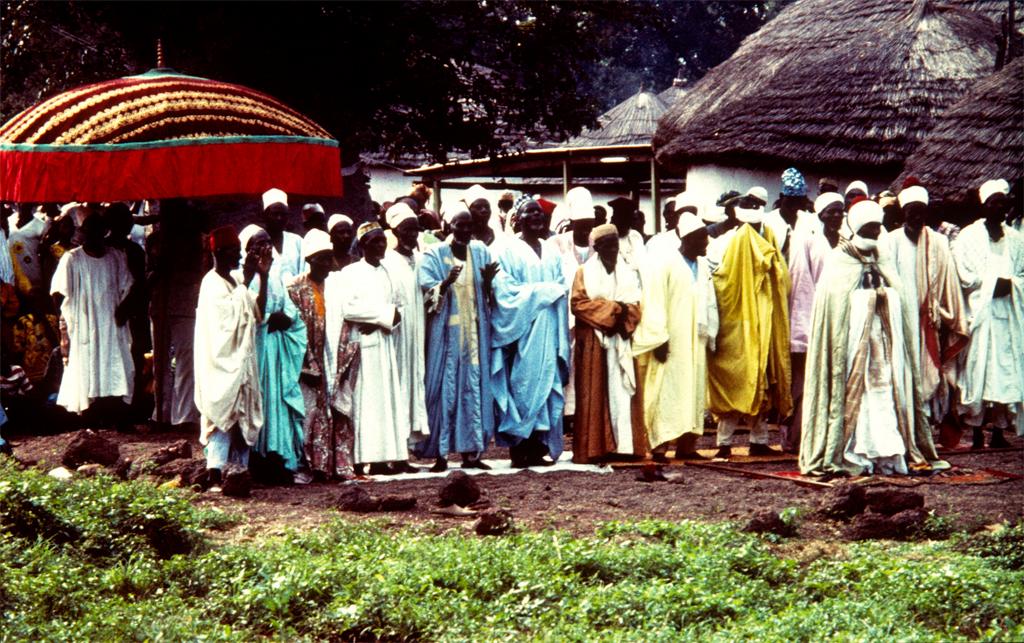
Northern Ghana; Yendi: People gathered for Ramadan Festival, 1977, Photographed by Herbert Cole.
There’s hidden sweetness in the stomach’s emptiness.
We are lutes, no more, no less.
If the sound boxes stuffed full of anything, no music.
If the brain and belly are burning clean with fasting,
every moment a new song comes out of the fire.
– Molana (Rumi), Ghazal No. 1739 from Divan-e Shams-e Tabriz
This past June Muslims around the world fasted for the month of Ramadan. The sight of the crescent moon is the mark for the beginning of the holiest month in the Islamic calendar. Muslims believe the Quran was revealed to the prophet Muhammad during Ramadan. Many friends and colleagues have asked me what Ramadan is about, and I wish to provide them with something deeper than a surface understanding.
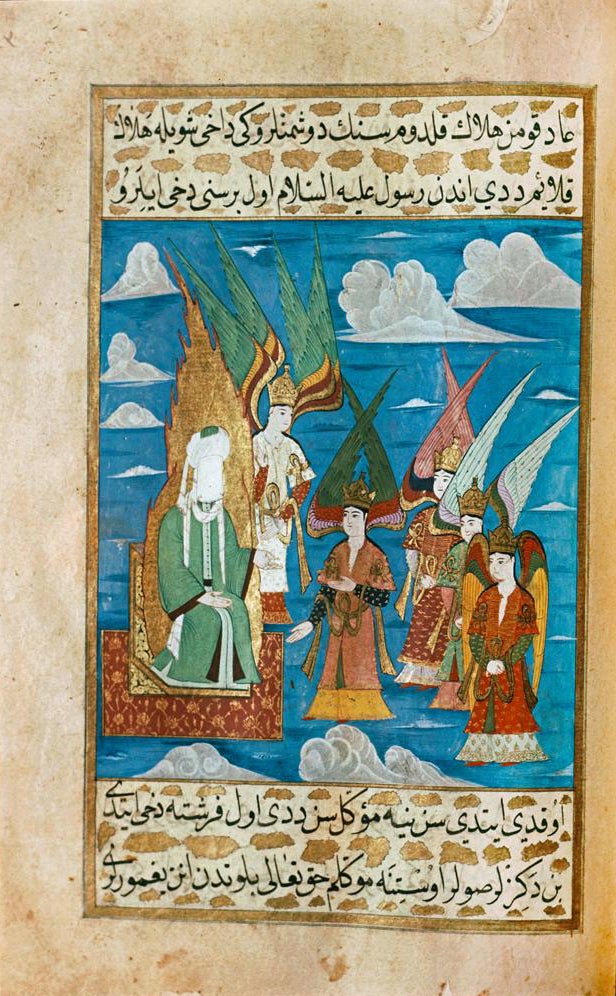
Unknown (Islamic), Mohammed’s vision of ascension, 1583, Türk ve Islâm Eserleri Müzesi. Image and original data provided by Erich Lessing Culture and Fine Arts Archives/ART RESOURCE, N.Y.; artres.com
For me, the month of Ramadan has always been marked by my mother’s hands shaking me and my sister awake at four in the morning, and leading us to a table filled with dates, perfumed milk, beans, rice, and lentil to eat sehri, the last pre-dawn meal, before the beginning of our day of fast. At the table my father would drink his last cup of tea, and indulge us in a song, or if he was in the mood, he’d play a few lines on the flute before stepping outside for a smoke.
For many, the month of Ramadan is about refraining. During this month Muslims (who are willing and able) fast from food, drink, smoke, and sex between the hours of dawn and dusk. In addition to refraining from food and drink, it is best practice to abstain from gossip, rudeness, cursing, arguments, lying, or anything else that would break your fast. In my family, we also refrain from listening to music, watching television, and eating meat.
Without food, drink, and popular entertainment the days become arduous and long, and daily routines are interrupted. But slowly, the whine of your stomach disappears, and the desire to fill it is mitigated by rest and reflection, and the true purpose of Ramadan reveals itself.
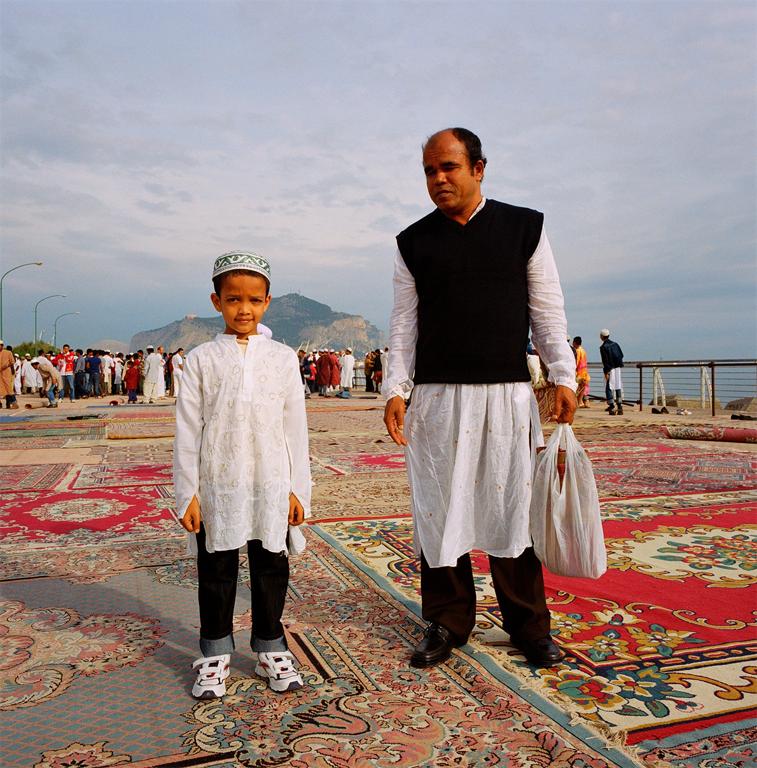
Alfredo D’Amato, Father and son during prayers by the coast to celebrate Eid ul-Fitr, marking the end of the holy month of Ramadan. Palermo, Sicily, Italy, 2008. © Alfredo D’Amato / Panos Pictures http://www.panos.co.uk/
The month of Ramadan is not just about refraining—it’s about generosity, it’s about forgiveness, and it’s about change.
One thing that Ramadan affords my busy family in New York City is time. Instead of rushing off to school or work every morning, waking up before the dawn allows time to watch the sunrise after clearing the table. Iftar, the time for breaking fast, also forces us to come together every day at the same time. And during the times between sehri and iftar, I often find there is more time for reading, writing, and sleeping. More time to play board games, and to think about life in a greater perspective.
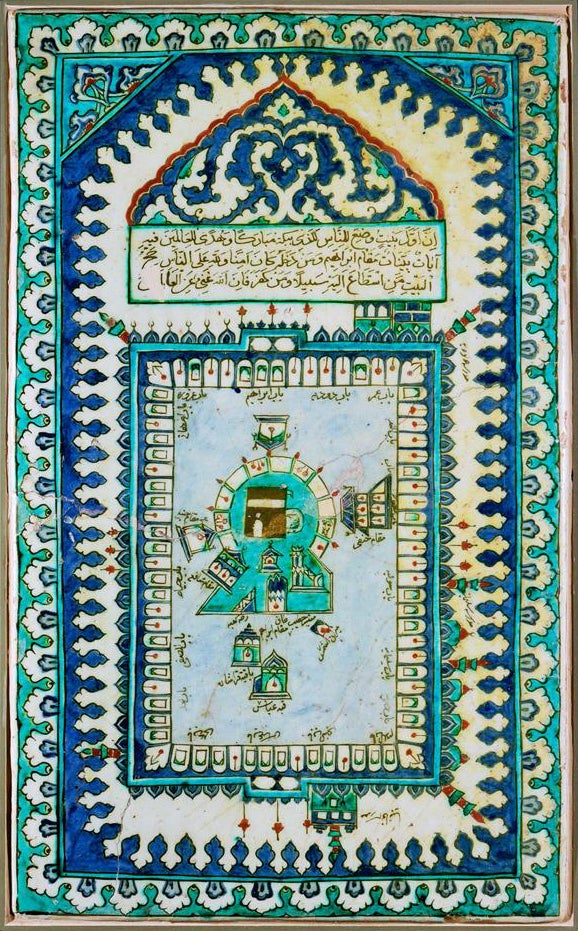
Unknown (Ottoman), Pilgrims’ way to the Kaaba in Mecca, 17th cent., Musée du Louvre. Image and original data provided by Erich Lessing Culture and Fine Arts Archives/ART RESOURCE, N.Y. artres.com
Kindness is essential during Ramadan. It is a time that you’ll see Muslims writing up checks for charities, but also it’s a reminder to be generous in the day to day—to all those around you, but also, perhaps most importantly, it teaches you to be kind to yourself. Ramadan is not a one-day affair—because fasting for a day does not help break bad habits. To make meaningful changes you have to give yourself time. Real change is gradual, and it’s not easy, and this month reminds you of that.
I find Ramadan to be a time when I can creatively recharge. There’s more time to let my mind have the space to think creatively. Ramadan is a time for me to do more of what I love. I love meditating on art at museums, sketching paintings, and creating patterns. This Ramadan, I had a plethora of images on Islamic art and events to reflect on via collections such as Herbert Cole, Erich Lessing Culture and Fine Arts Archives, and Panos Pictures in the Artstor Digital Library. This post includes some of my favorites.
The practices that you learn during Ramadan are to carry you throughout the year. Sixteen hours of fasting teaches discipline and moderation. The look inward helps you get to know yourself, and understand what truly matters to you. That’s why, a month after it has ended, I’m still thinking about it. Not that I am in any rush to begin fasting again—I truly enjoy drinking water throughout the day—but I am much stronger this year because I know that I can do without a whole lot. Humans are remarkable beings in that way. And, I am also aware, that I do have a whole lot.
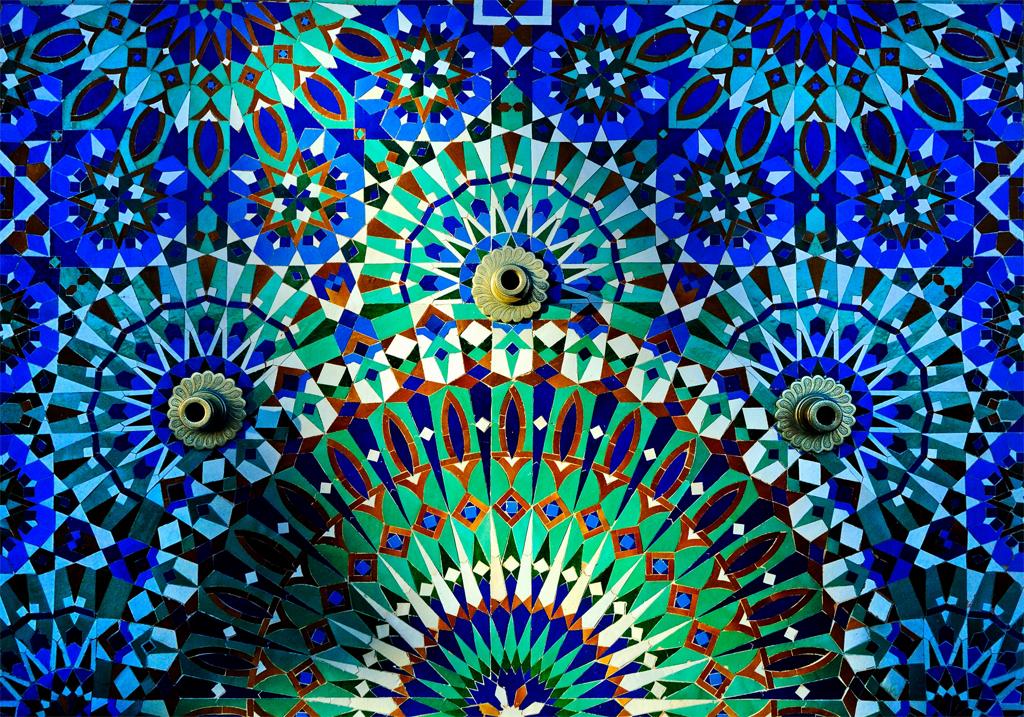
Mark Henley, A detail of a tiled decoration at The Hassan II Mosque, Casablanca, Morocco, 2009. © Mark Henley / Panos Pictures http://www.panos.co.uk/